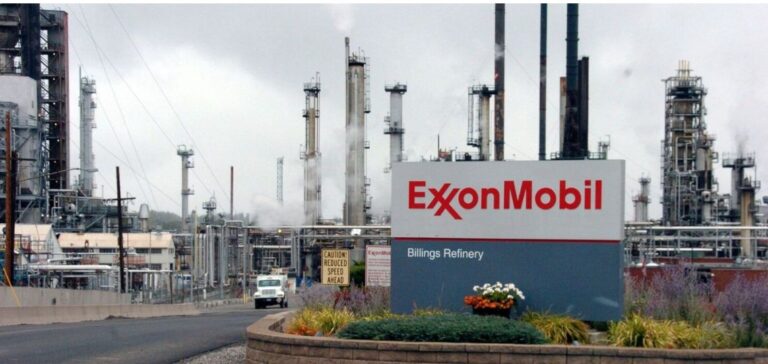Chad’s transitional parliament voted Wednesday to nationalize all the assets of Esso Chad, a former subsidiary of U.S. oil and gas giant ExxonMobil, whose recent sale to a British company is being contested by N’Djamena.
“The law nationalizing Esso’s assets and rights has been adopted by 98.3%,” government spokesman Aziz Mahamat Saleh told AFP. It was passed by the National Transitional Council (NTC), which was installed in early October after a National Reconciliation Dialogue (NRD) granted Mahamat Idriss Déby Itno an additional 24 months as transitional president.
The CNT, whose “deputies” were appointed by Mr. Déby, has acted as a parliament since he was first proclaimed head of state on April 20, 2021, at the head of a junta of 15 generals. The text was adopted by 172 votes for, one abstention, and one vote against, less than a week after the publication of a decree announcing this nationalization. “All assets and rights of any kind arising from the conventions, research permits, exploitation authorizations and transport authorizations for hydrocarbons of the company Esso Exploration and Production Chad Inc. are nationalized,” said a decree signed by Mr. Déby and released on Friday.
On December 9, 2022, Savannah Energy PLC, which operates mainly in Africa, announced in a press release that ExxonMobil had sold all the assets of its subsidiary Esso Exploration and Production Chad Inc. which include concessions in certain fields – notably the Doba field in the south – and the sale of the oil extracted, as well as a stake in the Chad-Cameroon pipeline that transports the crude to the Cameroonian port of Kribi. Chad immediately contested the sale, stating that it had been “carried out despite the express objections of the Chadian government” and in disregard of its “right of pre-emption.
Savannah Energy protested on Friday in a statement against what it considers to be “a direct violation of international conventions”, and had announced its intention to sue the Chadian state. The company also relies on a recent arbitration of the International Chamber of Commerce of Paris (ICC) which had arbitrated on January 7 in its favor.
Chad, a vast semi-desert country in Central Africa, became one of Africa’s oil producing and exporting countries in 2003, and has since become very dependent on oil. Profits from hydrocarbons represented 11.33% of its GDP in 2020, according to the World Bank.






















